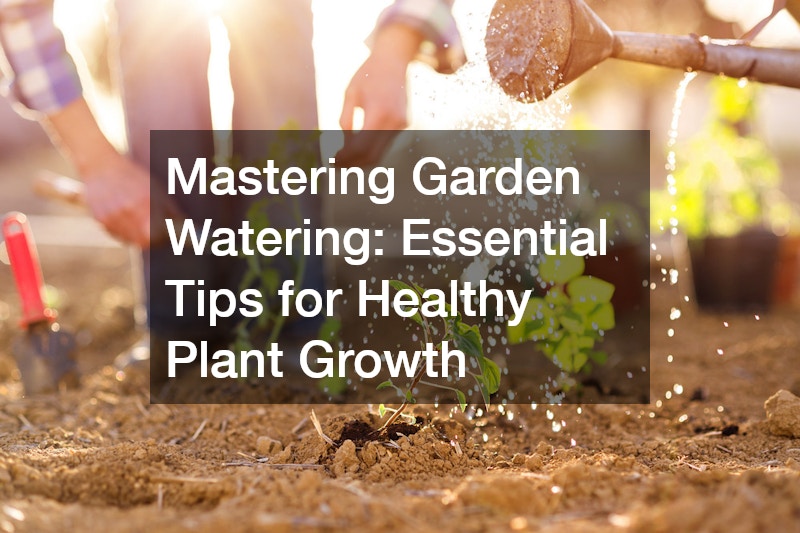
Mastering Garden Watering: Essential Tips for Healthy Plant Growth Proper garden watering is an art that every gardener must master to ensure the health and vitality of their plants. Water is a critical element that plants need to thrive, but knowing how much and how often to water can be challenging. Understanding the essentials of garden watering, you can help your plants flourish, whether you are a beginner or an experienced gardener.
The Importance of Proper Garden Watering Watering is not just about quenching a plant’s thirst. It’s about providing the right amount of moisture at the right time to support healthy growth.
Overwatering or underwatering can lead to various problems, from root rot to stunted growth. Therefore, mastering garden watering is crucial for maintaining a vibrant and productive garden.
Choosing the Right Watering Tools One of the first steps in mastering garden watering is selecting the appropriate tools. A watering can is a versatile tool that offers flexibility for small gardens or specific plant areas. It’s ideal for spot treatments, such as watering young seedlings that may not receive enough moisture from an irrigation system. The gentle spray from a watering can is perfect for delicate plants, ensuring they thoroughly soak without damaging their leaves or stems.
A hose with an adjustable nozzle is essential for larger gardens. High-quality hoses last longer and provide better water flow, making reaching every corner of your garden easier. Attachments like rose breaker nozzles mimic the gentle fall of rain, which is beneficial for evenly distributing water across your plants.
Techniques for Effective Garden Watering When it comes to garden watering, timing is key. The best time to water is early in the morning or late in the afternoon. Watering in the morning allows the soil and plants to absorb moisture before the heat of the day causes evaporation. In the evening, watering helps cool the soil, making it easier for plants to take up water and sustain their growth overnight.
the “water, wait, water” method is a common technique. This involves giving your garden a light watering, allowing the soil to absorb the moisture, and then watering again to ensure a deeper soak. This method helps prevent water runoff and ensures that water penetrates the soil effectively, reaching the roots where needed most.
Understanding Your Plants’ Watering Needs Not all plants have the same requirements. For example, leafy vegetables and herbs typically need more frequent watering because they have shallow root systems and are more susceptible to drying out. On the other hand, established plants with deeper roots, such as trees and shrubs, may require less frequent but deeper watering to encourage root growth and overall plant health.
Monitoring your plants regularly is important to determine when they need water. A simple way to check is by sticking your finger into the soil about an inch deep. If the soil feels dry, it’s time to water. However, be mindful of overwatering, as it can be just as harmful as underwatering.
Conclusion Mastering garden watering is essential for maintaining a healthy and productive garden. By choosing the right tools, timing your watering sessions appropriately, and understanding your plants’ specific needs, you can ensure they receive the proper care and nourishment they require. Remember, the goal is to keep your plants alive and provide them with the ideal conditions to thrive. With these essential tips, you’ll be well on your way to achieving a lush and vibrant garden.
.

